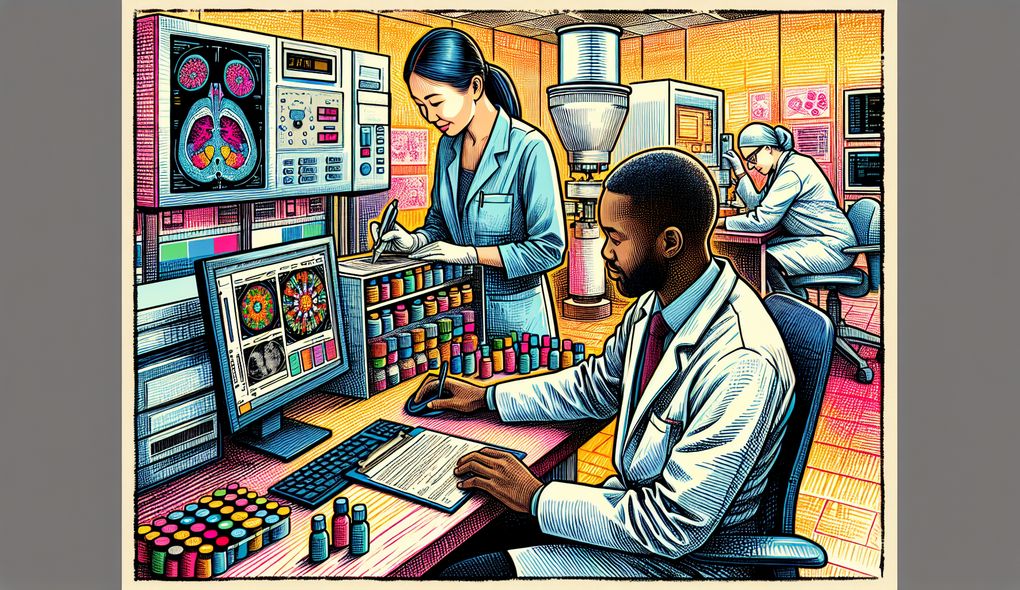Can you share a challenging case you encountered in nuclear medicine and how you handled it?
SENIOR LEVEL

Sample answer to the question:
Yes, I can share a challenging case I encountered in nuclear medicine. A few years ago, I had a patient who came in with an unclear diagnosis and needed a nuclear medicine study to determine the cause of their symptoms. The challenge was that the patient had a history of claustrophobia and was extremely anxious about undergoing the procedure. To handle this, I took the time to explain the process thoroughly, addressing their concerns and ensuring their comfort throughout. I also coordinated with the technologists to minimize the time spent in the imaging machine. By taking a collaborative and patient-centered approach, we were able to successfully complete the study and provide an accurate diagnosis.
Here is a more solid answer:
Certainly! Let me share a challenging case I encountered in nuclear medicine. There was a patient who came to our clinic with a thyroid nodule that required further evaluation. The challenging part was that the patient had a history of iodine contrast allergy, which limited our options for imaging. To address this, I conducted a thorough review of the patient's medical history and consulted with a team of radiologists and allergists to develop a personalized imaging plan. We decided to perform a Technetium-99m scintigraphy, which is a non-iodine-based imaging modality. By utilizing my analytical skills and collaborating with the interdisciplinary team, we were able to successfully image the thyroid nodule and provide the patient with an accurate diagnosis.
Why is this a more solid answer?
The solid answer provides a more comprehensive explanation of a challenging case in nuclear medicine. It includes specific details about the patient's condition, the candidate's problem-solving approach, collaboration with the interdisciplinary team, and the use of an alternative imaging modality. However, it can still be improved by incorporating more information about the candidate's communication and leadership skills.
An example of a exceptional answer:
Absolutely! Let me share an exceptional case I encountered in nuclear medicine. We had a patient who presented with a complex neuroendocrine tumor that required precise localization for surgical planning. The challenge was that the tumor was small and located in a critical area near major blood vessels. To tackle this, I employed cutting-edge molecular imaging techniques, such as Gallium-68 DOTATATE PET/CT, which has high sensitivity and specificity for detecting neuroendocrine tumors. I communicated extensively with the patient, explaining the procedure and addressing any concerns they had. Additionally, I collaborated closely with the surgical team, providing them with detailed imaging findings and recommendations for tumor localization. This multidisciplinary approach allowed us to accurately localize the tumor, leading to a successful surgical outcome for the patient.
Why is this an exceptional answer?
The exceptional answer goes above and beyond the solid answer by highlighting the candidate's use of advanced molecular imaging techniques and collaboration with the surgical team. It also emphasizes the candidate's excellent communication skills and focus on patient care. The exceptional answer covers all the evaluation areas mentioned in the job description and provides specific examples of the candidate's expertise. It demonstrates a high level of proficiency in nuclear medicine and showcases the candidate as an exceptional fit for the role.
How to prepare for this question:
- Review challenging cases you have encountered in nuclear medicine and identify the key elements that made them difficult.
- Reflect on your problem-solving approach in challenging cases and highlight how you utilized your analytical skills.
- Consider examples where you effectively communicated and collaborated with interdisciplinary teams in nuclear medicine.
- Stay up-to-date with the latest advancements in nuclear medicine equipment, software, and imaging techniques.
- Think about situations where you took the lead in educating others in a clinical setting and share those experiences.
What are interviewers evaluating with this question?
- Strong analytical and problem-solving abilities
- Excellent communication and interpersonal skills
- In-depth knowledge of radiation safety and quality assurance
- High level of proficiency in using nuclear medicine equipment and software
- Capability to lead and educate others in a clinical setting

